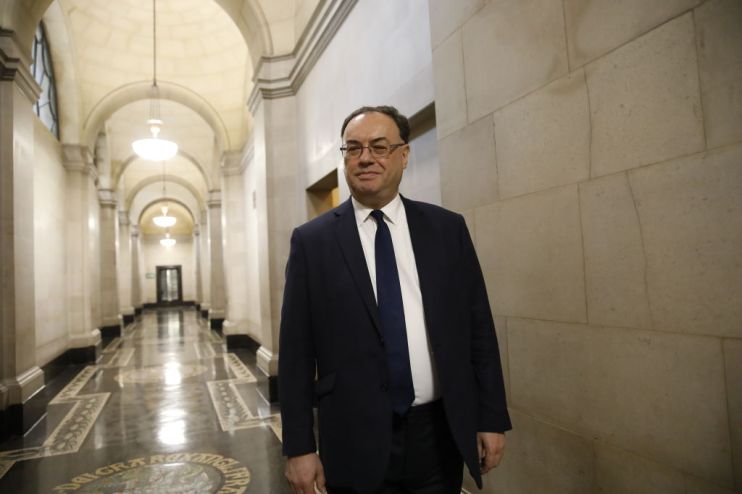BoE’s Andrew Bailey: It would be ‘foolish’ to rule out negative interest rates

Bank of England governor Andrew Bailey has said it would be “foolish” to rule out negative interest rates but said the BoE is “not ruling it in” either.
The governor has previously argued against negative rates but admitted today: “I have changed my position a bit.”
Chatter about negative interest rates has increased in recent days. Traders’ bets in the markets have indicated that they could be put in place by December. Meanwhile, some BoE policymakers have said they should be considered.
The Bank has taken unprecedented actions to tackle coronavirus’s effects on the economy. These include slashing interest rates to a record low of 0.1 per cent and ramping up its bond-buying programme.
Sticking broadly to the line he has followed in recent weeks on negative rates, Bailey told MPs on Parliament’s Treasury Committee (TC): “We do not rule things out as a matter of principle, that would be, I think, a foolish thing to do.”
He was keen to highlight that the Bank is not saying it will cut rates further: “We’re not ruling it in but we’re not ruling it out.”
Negative interest rates mean banks have to pay to keep money in their central bank’s virtual vaults. They are designed to spur lending but limit banks’ profitability.
Bailey admits slight shift on negative rates
Although he has previously said he does not think negative interest rates are appropriate for the UK, Bailey was more circumspect today.
He admitted as much, saying: “I have changed my position a bit. And that is because… in this situation we have to review our tools as a matter of regularity.”
His appearance before the TC alongside other Bank colleagues came after data showed that UK inflation slumped to 0.8 per cent in April. That is well below the Bank of England’s two per cent target.
The BoE thinks the UK economy could shrink by 14 per cent this year. That would be the worst contraction in 300 years.
The governor said the Bank is studying the effects of negative rates in countries that use them. The Eurozone and Japan are examples. Bailey said there “are some pretty mixed reviews” of the policy.
“There are a lot of issues around for instance how it would affect the structure of the financial system,” he said.
Bank’s optimism questioned
Probed by MPs about the Bank’s expectations for the economy, deputy governor Ben Broadbent played down the idea that Threadneedle Street was predicted a rapid rebound.
“If one is to use a letter of the alphabet – and I hear a lot about our scenario being V-shaped – it is a pretty lopsided V,” he said.
“There is no doubt that in our scenario the recovery is far from immediate and takes place over a longer period of time.”
The Bank foresees 15 per cent growth in 2021 with the economy returning to its pre-Covid size in the second half of that year. That is more optimistic than most other predictions.
Bailey said he is “not very much taken with using letters to describe” the shape of the recovery. But he said the Bank believes government support schemes are working well in limiting the economic damage.